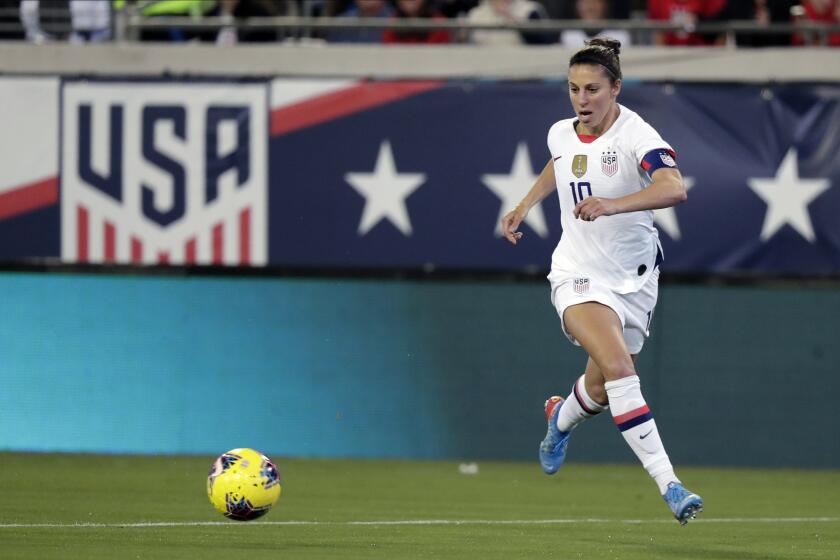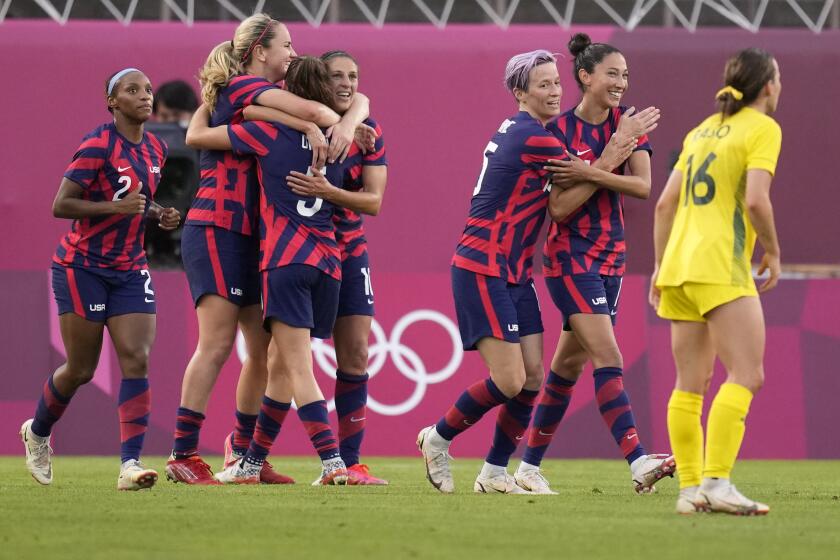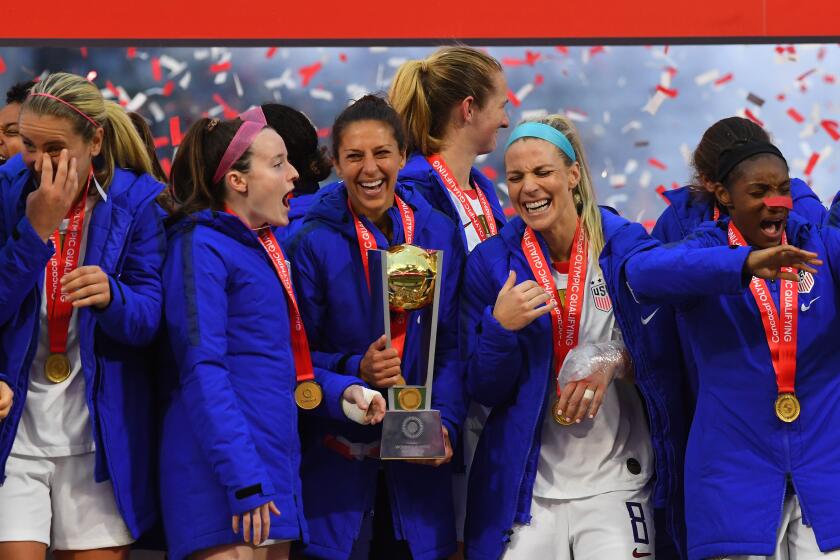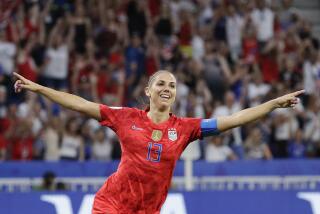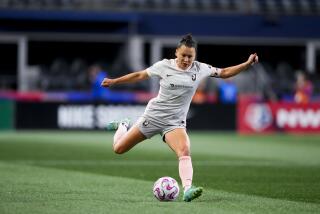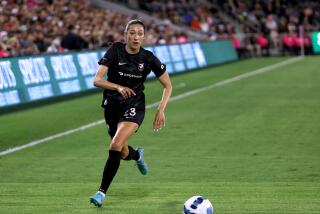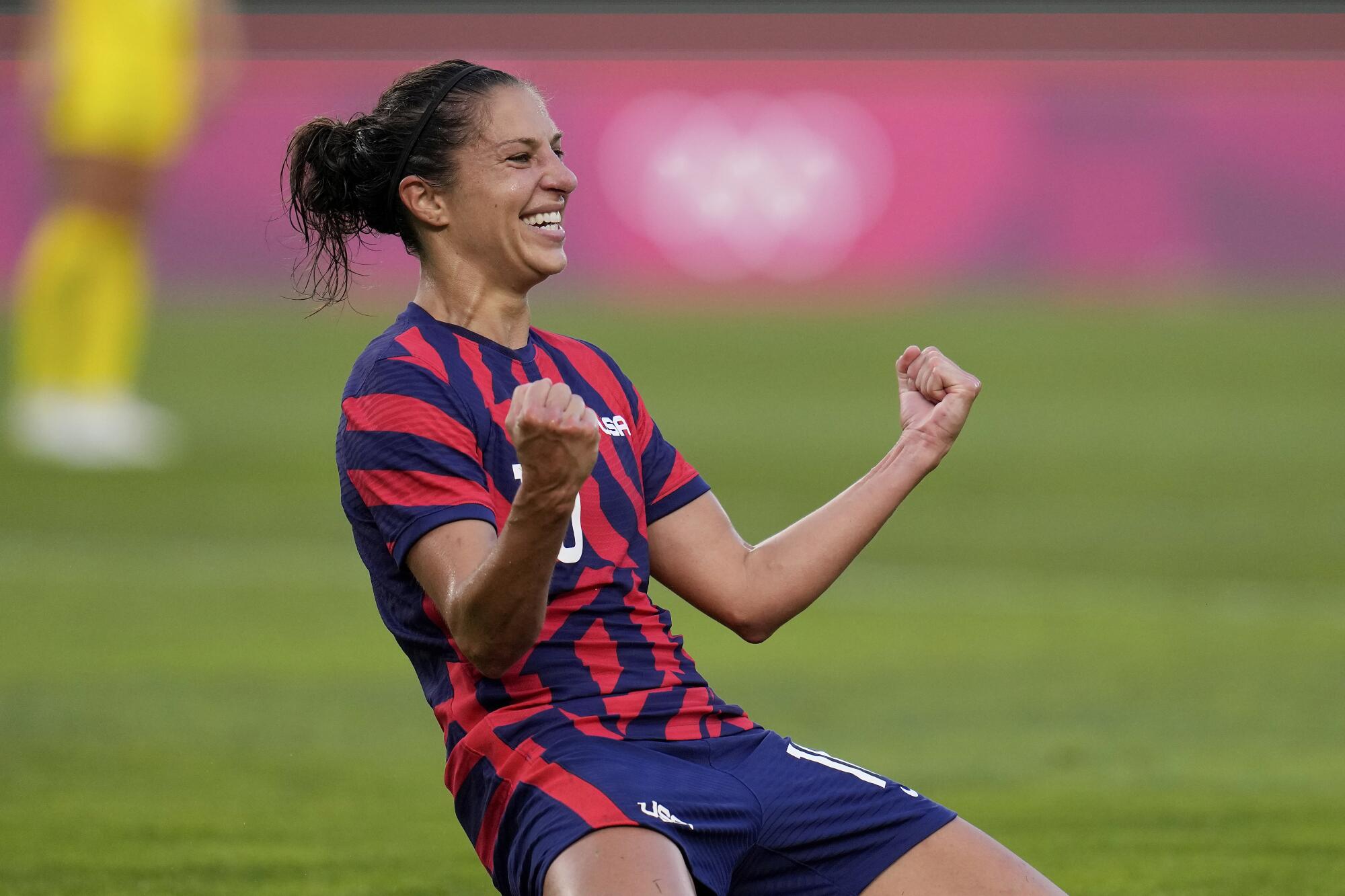
MEDFORD, N.J. — Eight days into retirement, Carli Lloyd had yet to break a sweat on purpose.
“I haven’t run. I haven’t done anything,” she said, more with glee than guilt.
For the first time in nearly two decades, there are no more games on her calendar. No more chilly morning workouts to push through, no more solitary training sessions or sacrificing evening visits with family and friends to an early wake-up call.
That drive made her a two-time world player of the year and a two-time World Cup and Olympic champion. It put her name on the short list of the greatest women soccer players of all time. But, at 39, she’s shifting from drive to neutral and it’s a transition that will take some time.
“This feels like sort of an offseason,” she said. “I don’t know if retirement has fully hit me. I’m going to miss World Cups, miss Olympics.
“[But] I think I’m just ready to live life.”
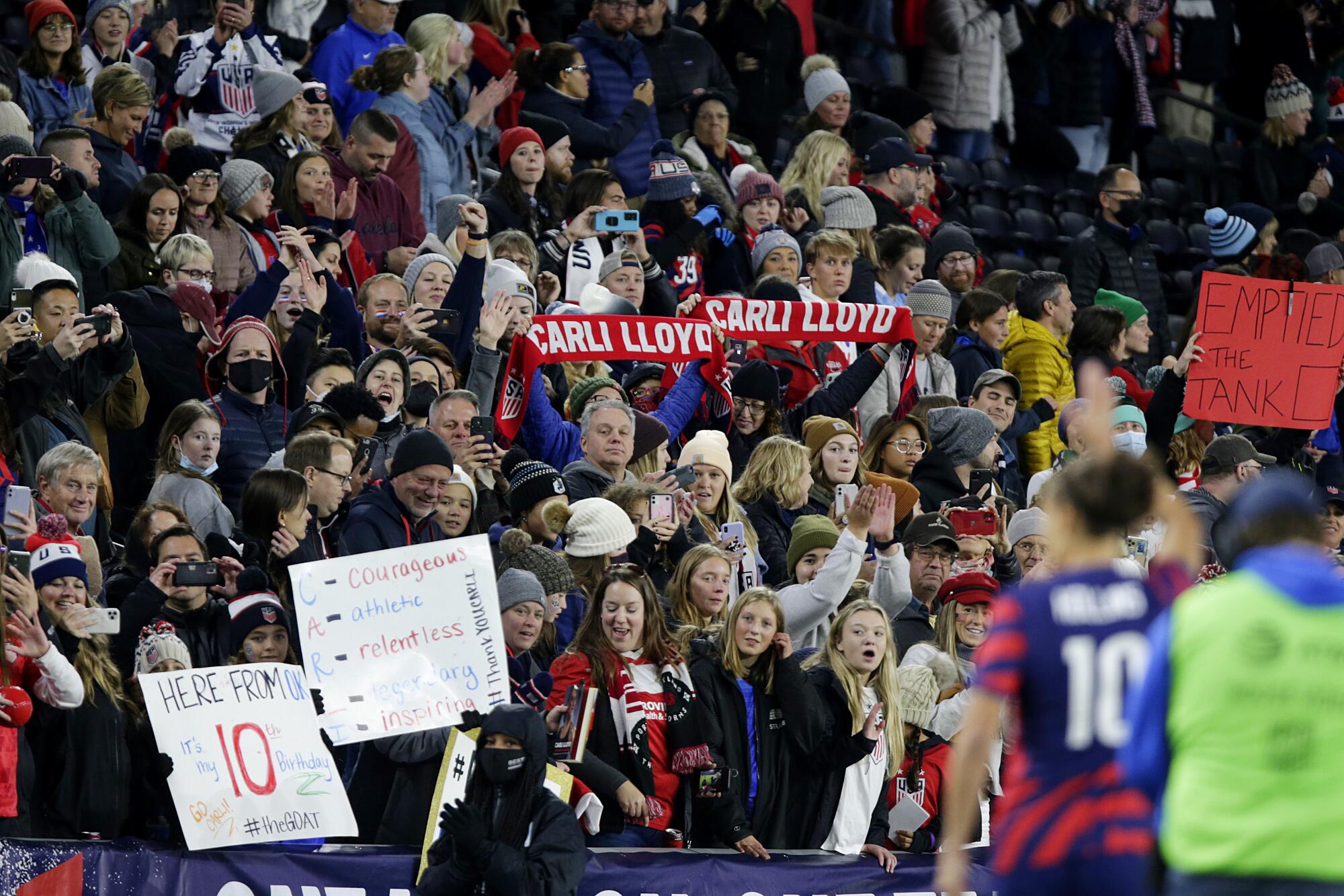
Dressed in a gray sweatshirt and black sweatpants and sitting on a sofa in the covered patio behind the four-bedroom home she shares with Brian Hollins, her high school sweetheart-turned-husband, Lloyd smiled often during an hour-long chat. That’s another change from her playing days, when joy and happiness were considered obstacles to grim-faced success.
The house, where the couple have lived since 2018, is hidden at the end of a narrow quarter-mile-long road and surrounded by eight acres of pitch pines and red maples. Bambi is their closest neighbor.
“The deer sometimes come up at night and eat the grass,” she said.
It’s an idyllic hideaway, one where the quiet is deafening, the outside world just a rumor and soccer, for the moment, is spoken about in the past tense.
“I haven’t had a huge amount of time to reflect. But the reflection that I’m having is I had a good run, you know?” Lloyd said. “I had 17 years. I did all that I wanted to do. I accomplished all that I wanted.”
And if she angered a few teammates and crossed a few coaches along the way, well that couldn’t be avoided.
“I did it my way,” she said, adding “there’s no regrets I have in my soccer career.”
Although Lloyd announced her retirement in August, shortly after scoring twice in the bronze-medal game at the Tokyo Olympics, she played her final match on Nov. 7, going 90 minutes in a NWSL playoff loss to the Chicago Red Stars. She was listed on the lineup card as Carli Anne Hollins.
Soccer-wise, Carli Lloyd did not have a happy 2020. However, the year turned out to be one of her best once she reunited with her family from which she was estranged.
“It’s Brian and I now,” she said. “It wasn’t Brian and I for so long and now it’s him and I.”
Which is why, eight days into now, Lloyd was already plotting the couple’s new life, starting with a late-November trip to the Maldives, one of the few places on Earth more quiet and tranquil than their New Jersey home.
“We wanted to just go unplug,” she said. “It’s our five-year anniversary. We have a lot to celebrate. And for the first time, I will not have to think about soccer.”
After that will come ski trips, four-wheeling, maybe a summer visit to Wyoming. Eventually, a family.
“You know, just doing the everyday normal human things,” she said.
Like going to work; that’s in the future, too. Although Lloyd was one of the best-paid women players in the world, her salary — she disputed several published reports that put her earnings at $518,000 but wouldn’t offer an alternative figure — is but a fraction of what many male footballers earn. The Galaxy alone paid nine players more than that.
What kind of work she’ll get is to be determined.
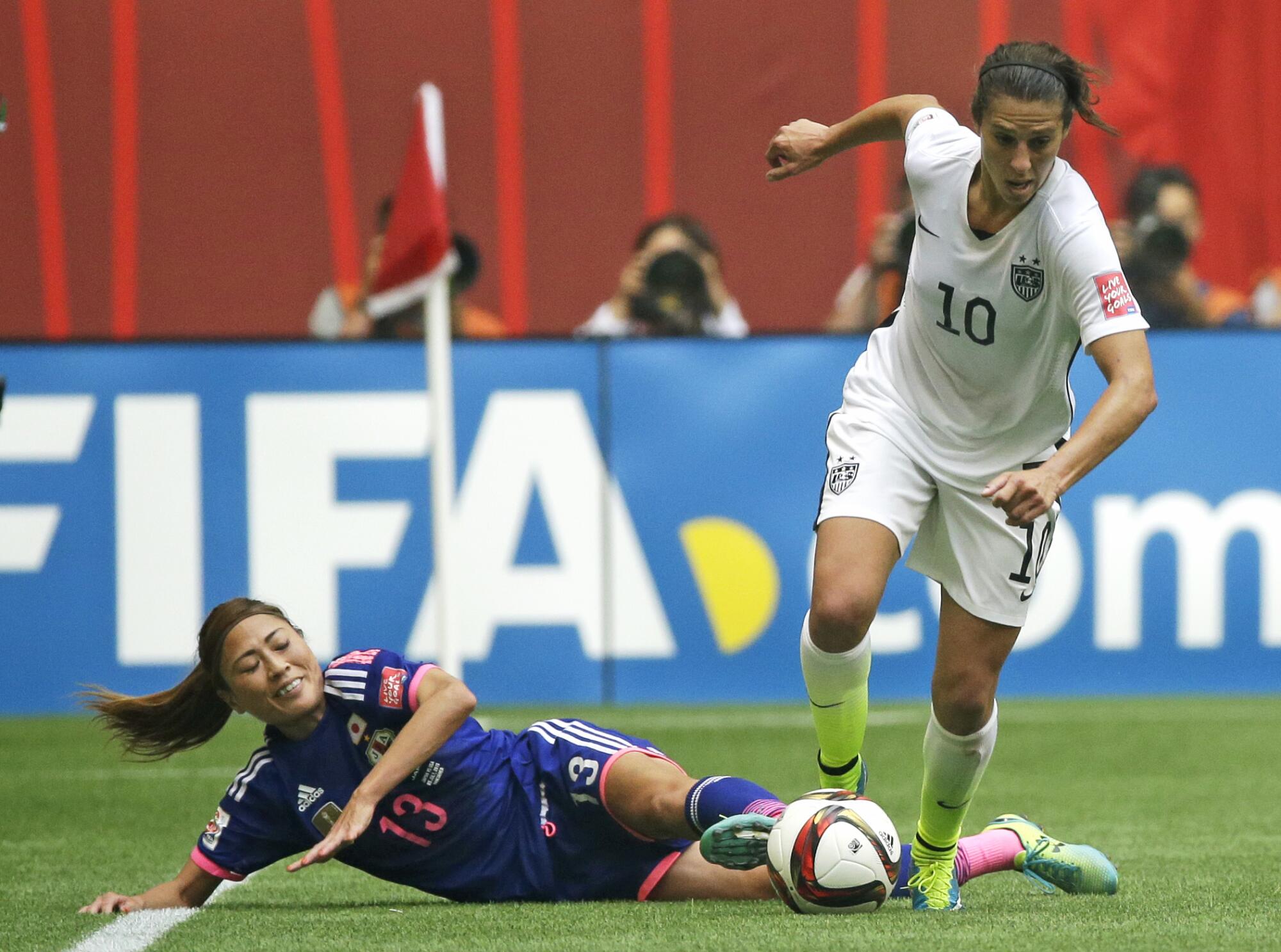
“It’ll be interesting to see what kind of opportunities come,” she said. “I want to stay involved in the game. I don’t know if there’s like a sporting director-type role. I feel like that would be a little bit more up my area.”
Wherever she lands figures to be a step down from a playing career that produced a long list of unparalleled accomplishments. Lloyd played in 316 games in three different decades for the U.S., the second-most international appearances of all-time. The U.S. lost just 17 of those games.
She also participated in a record 47 world championship matches — 25 in the World Cup and 22 in the Olympics — and her 134 goals for the U.S. are the fourth-most in international soccer history. Her club career, which spanned 12 years with six teams on two continents, included another 46 goals in 131 games.
She’s the only player to score the winning goal in three Olympic medal matches, twice clinching gold. And she’s also the only person, of either gender, to score a hat trick in a regulation-length World Cup final, getting three goals in the first 16 minutes of the 2015 final with Japan.
Some of those records were ones even Lloyd didn’t know she owned. But the numbers tell only part of the story because none of them came easily.
Lloyd almost quit soccer when she was cut from the U-23 national team. She was unfit, unpolished and undisciplined, so her father Stephen introduced her to James Galanis, an Australian-born coach who convinced Lloyd the only way she would succeed was by outworking everyone else.
U.S. stars Megan Rapinoe and Carli Lloyd hinted they will retire from the national team after the Tokyo Olympics, allowing younger players to chase wins.
She eventually adopted a training regime that, at its peak, included almost 1,000 sit-ups and 500 push-ups a day in addition to long runs and mind-numbing solitary workouts in which she kicked a ball against a wall and played the rebound off her instep, perfecting her first touch.
When she won her first FIFA world player of the year award in 2016, she celebrated with an early-morning workout in the hotel gym. At the last Olympics, days before announcing her retirement, she followed games by running wind sprints in the punishing heat and humidity of the Japanese summer. It was a single-mindedness she embraced, titling her autobiography “When Nobody Was Watching.”
Galanis also convinced Lloyd others wanted to see her fail, telling her repeatedly “you’ve got to prove these guys wrong.” She embraced that too.
“I wanted people to respect me for my play on the field, not what I did off the field. Not if I looked pretty or not,” she said. “It was just simply respect me for what I’ve done. That’s it.”
And when she perceived people didn’t, it led to conflict.
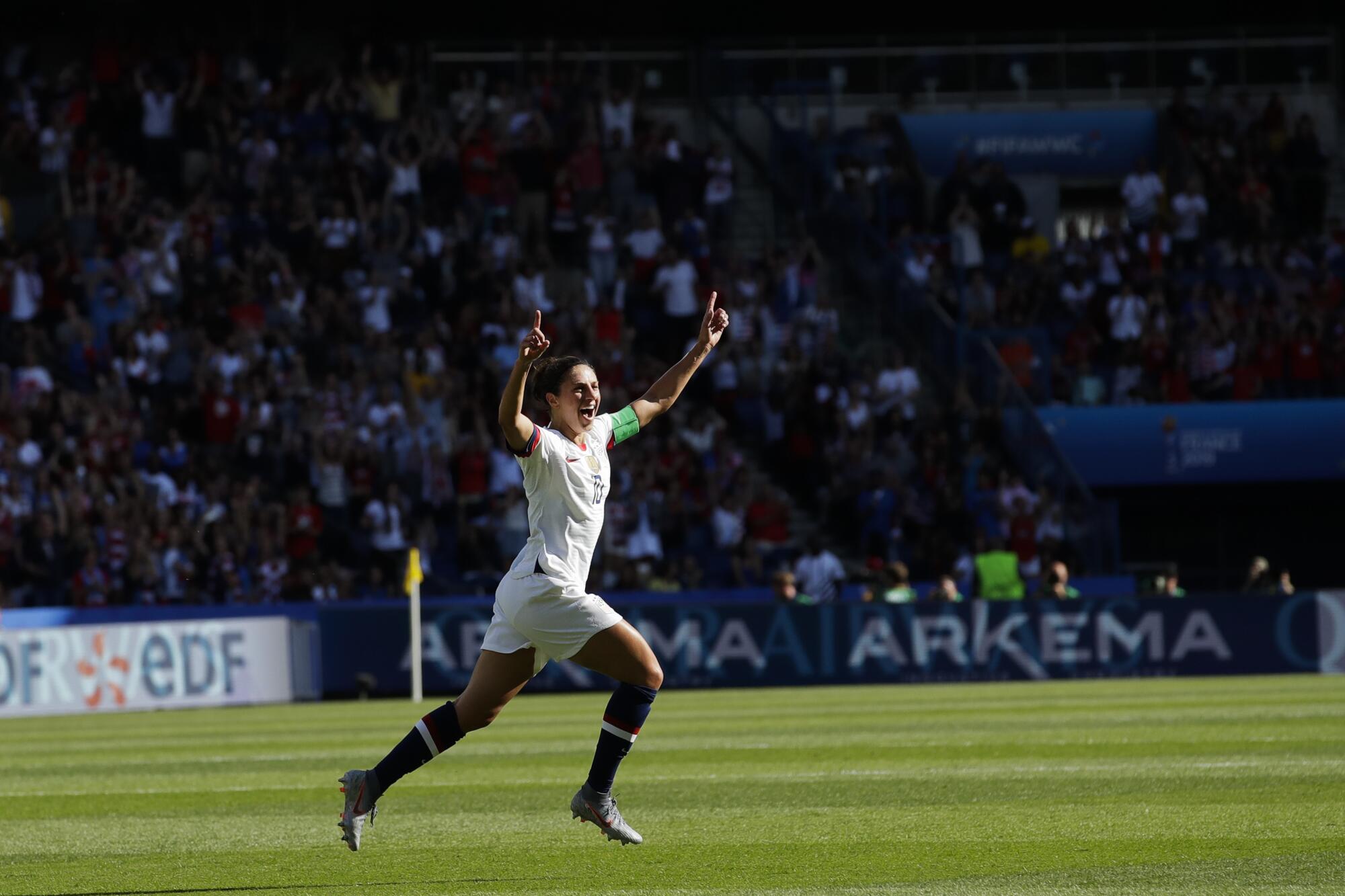
Pia Sundhage, who coached Lloyd to two Olympic titles, said “when she felt that we had faith in her, she could be one of the best players. But if she began to question that faith, she could be one of the worst.”
Lloyd had her greatest success under Jill Ellis, winning two World Cups and both of her world player of the year awards. But she said the coach, then an assistant, orchestrated her benching in the London Games, then didn’t allow her to compete for a starting job in the 2019 Women’s World Cup.
Whether any of that was true didn’t matter because the chip Lloyd carried on her shoulder is part of what made her great.
“Go back to the [Michael] Jordan days. He always had the chip,” Lloyd said. “Kobe Bryant as well. I put more pressure on myself than anybody did. I was very rarely satisfied after a game. So having that attitude, that mentality and then the chip, people always doubting me and whatnot, it drove me to greater and greater heights.
“It was like proving people wrong until the day that I announced my retirement,” she continued. “And then it was like, ‘Oh, we don’t want her to go.’ I’m like, wait a minute, I thought people hated me. So it’s been pretty cool knowing that the end just rewarded me for staying true to who I am.”
Lloyd mellowed considerably in 2020, when a knee injury and the pandemic sidelined her for most of the year. That’s also when retirement went from a concept to a possibility.
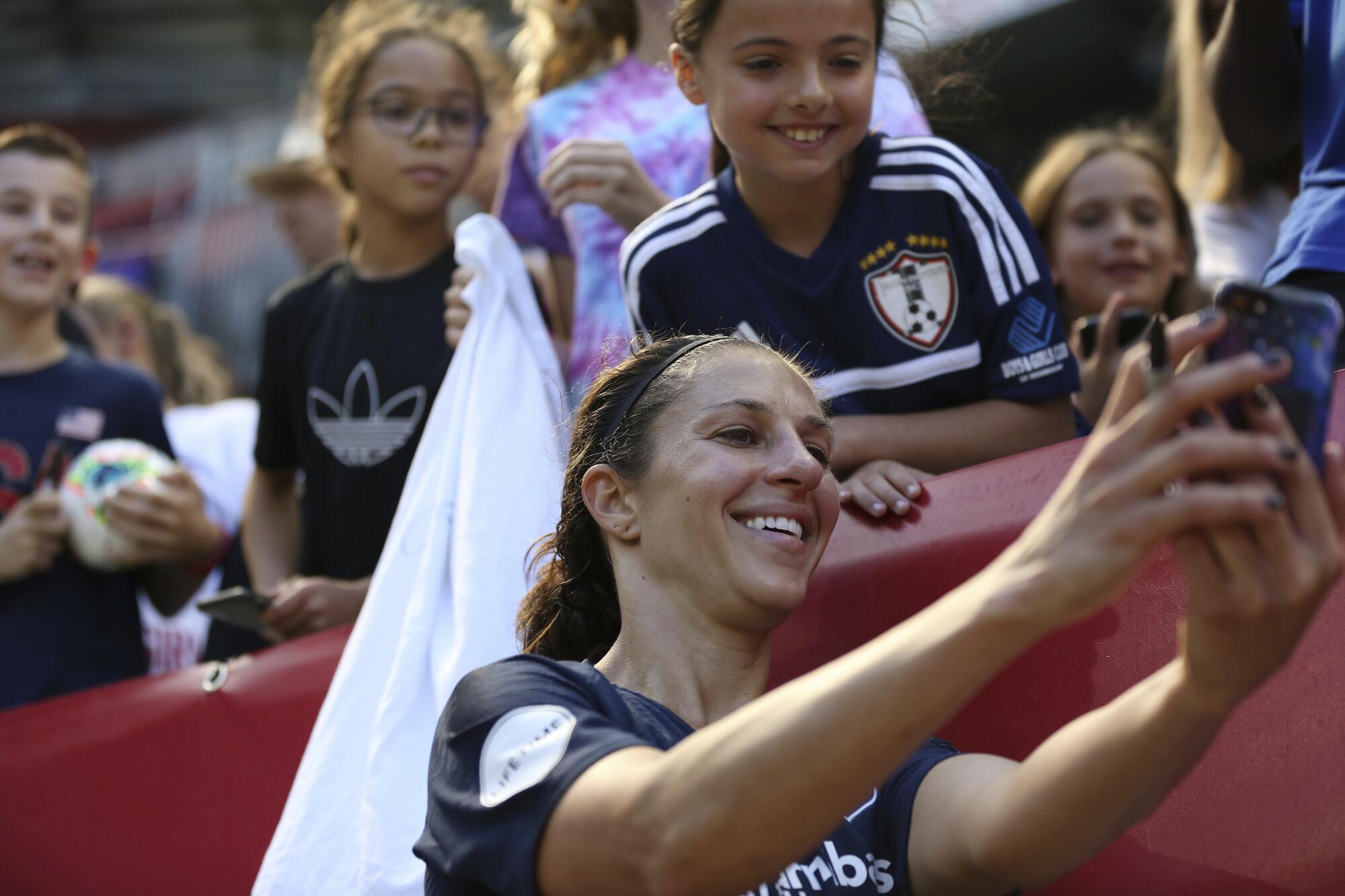
“COVID slowed life down for me, allowed me to step away from the situation that I had been in for so long with tunnel vision,” she said. “I started to have a different take on life. I started to think about my family.”
Lloyd had been estranged from her parents for more than a decade, a break she blames on Galanis who, she said, drove a wedge between them. So she ended the relationship with the coach through a text message and said she never heard from Galanis again.
“It’s not really the on-the-field accolades and stuff that has made me just feel really proud and happy at the end,” she said. “It’s like everything else has come full circle. My parents, my family are back in my life. It’s kind of weird how life works out.”
After that break Freya Coombe, her former coach at Gotham FC, said Lloyd seemed at peace.
“She’s really a nice, simple girl at heart,” Coombe said. “She certainly knew it was the end. You could definitely see her making the most of every single minute on the field, every single minute with her teammates, every single moment with fans.
“She was definitely more relaxed, engaging in a lot more of the social side than she had done before.”
Lloyd alluded to retirement frequently during the Tokyo Games but said she didn’t make a firm decision until after the medal ceremony in an empty stadium in Yokohama.
A two-time women’s world player of the year, Carli Lloyd planned to make this year’s Tokyo Games her curtain call. Now she’ll delay her retirement for a year.
“That was that,” she said. “There was no second-guessing. There was no dwelling on it. It just was … it was time.”
As for her legacy, Lloyd said that’s up to others, but her numbers leave no doubt she’s among the greatest who ever played the game. Only three players of either gender have scored more goals, and none of them played as many games. Just two women have won more player of the year awards, and neither of them have won as many world championships.
Induction into the National Soccer Hall of Fame is a certainty. But first there are deer to feed, vacations to take and a family to get to know again.
“Those big stages, Olympics, World Cup finals in front of packed stadiums, I’m going to miss those,” she said. “I’m OK with knowing that nothing in my life will ever fill that void. There’s a lot more to me than just playing soccer. I just want you to treat me as Carli the human.
“And yeah,” she added with a newfound smile, “I’m going to miss all the grind.”

